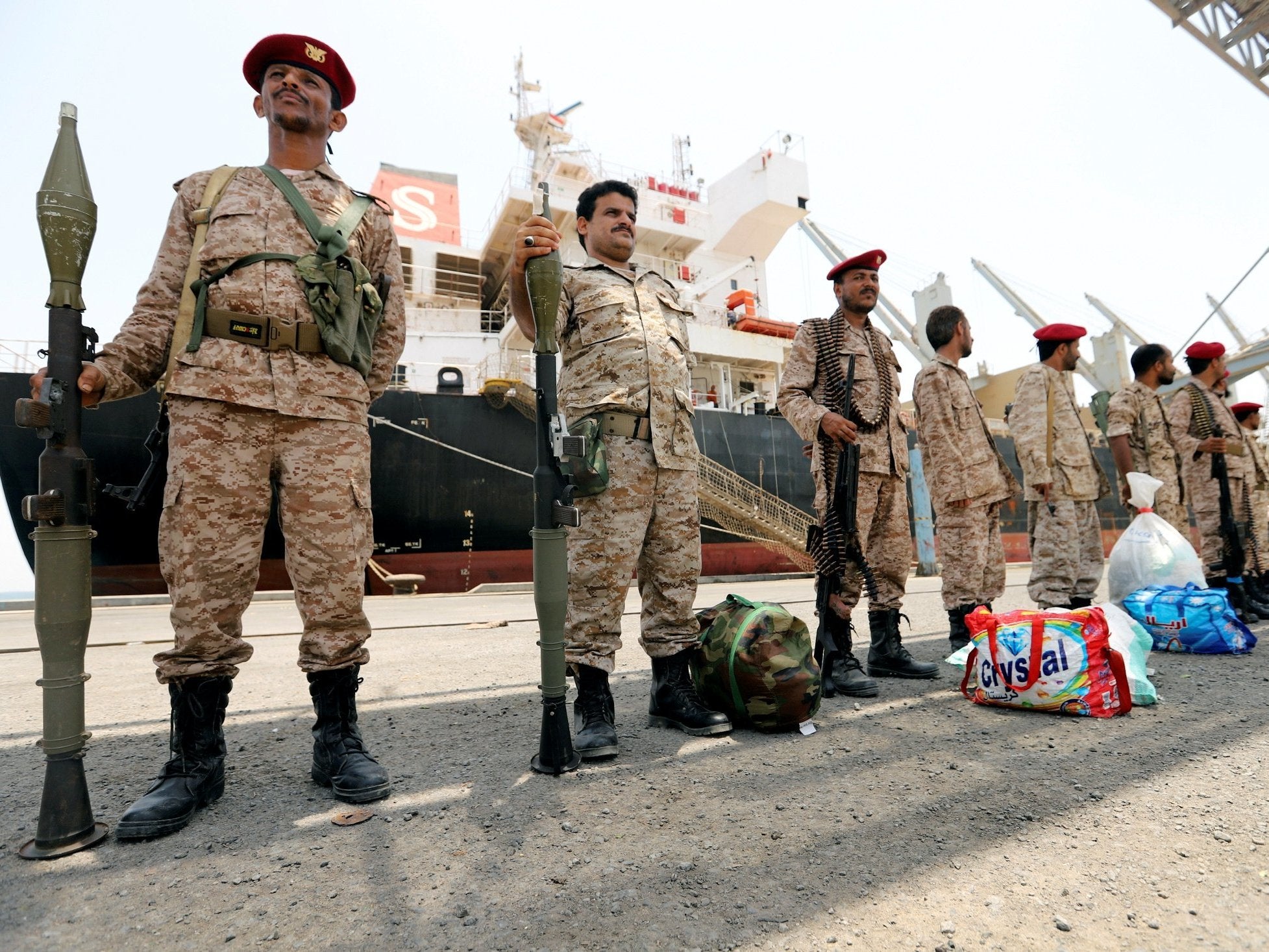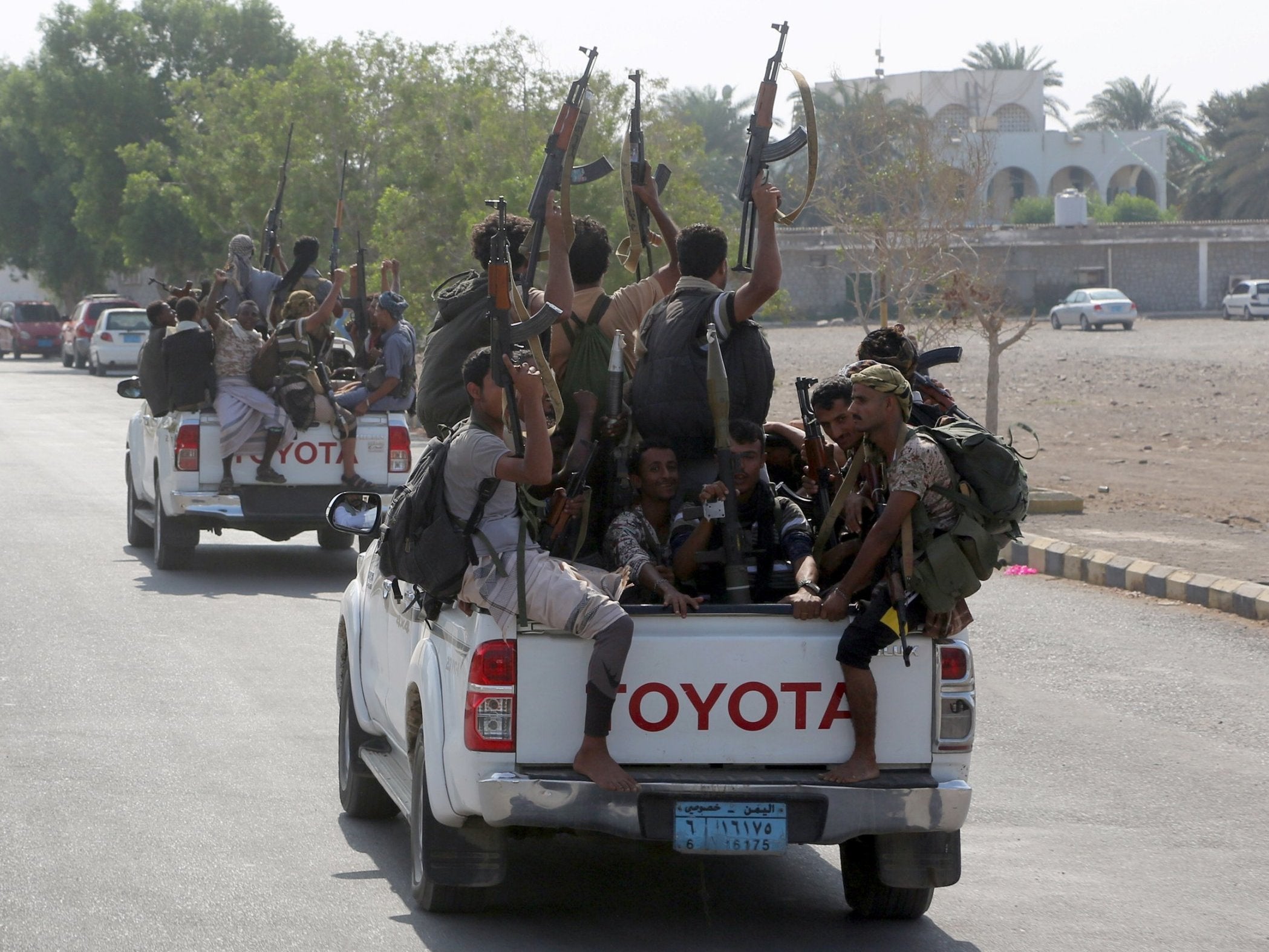Yemen war: End to fighting could be in sight as Houthi rebels announce withdrawal from lifeline port
UN peace deal placed pullback of all forces from city in September, but until Saturday neither side had complied

Your support helps us to tell the story
From reproductive rights to climate change to Big Tech, The Independent is on the ground when the story is developing. Whether it's investigating the financials of Elon Musk's pro-Trump PAC or producing our latest documentary, 'The A Word', which shines a light on the American women fighting for reproductive rights, we know how important it is to parse out the facts from the messaging.
At such a critical moment in US history, we need reporters on the ground. Your donation allows us to keep sending journalists to speak to both sides of the story.
The Independent is trusted by Americans across the entire political spectrum. And unlike many other quality news outlets, we choose not to lock Americans out of our reporting and analysis with paywalls. We believe quality journalism should be available to everyone, paid for by those who can afford it.
Your support makes all the difference.Yemen’s Houthi rebels said they are beginning a unilateral withdrawal from Hodeidah, a move which could save a fractured peace deal and end the fighting.
The bulk of food and humanitarian aid to the war-torn country comes through the lifeline port, which over the past year has become the front line of the war between the rebels and the Gulf-backed Yemeni government.
The fighting had strangled the flow of aid to millions who are on the brink of famine.
A witness told the Reuters news agency that Houthi forces had started leaving the port. The information is yet to be confirmed by the United Nations (UN).
A deal brokered by the UN in Sweden in December stipulated a retraction of all forces from three key Red Sea ports as the first step to a longer comprehensive peace agreement.
But until Saturday, neither side had moved.
In a major breakthrough, Mohammed al-Houthi, the head of the rebels’ Supreme Revolutionary Committee, confirmed his fighters would start pulling back at 10am from Hodeidah port, Saleef port, used for grain, and Ras Isa, used for oil.
The Houthi leader said the rebels had been forced to act unilaterally after the Saudi-backed government repeatedly delayed a parallel withdrawal from parts of the city
“The [rebel] army and committees are withdrawing unilaterally as a result of the refusal of the countries of the US-British-Saudi-Emirati aggression and their allies to implement the [Stockholm] accord,” the rebel leader said on Twitter.
The United Nations had first announced the withdrawal late on Friday, saying it marked the first step to a comprehensive peace plan brokered last year outside Stockholm.
General Michael Lollesgaard, the head of the UN redeployment committee, said the withdrawal of rebel forces will be completed by Tuesday.
He said a UN observer mission he would lead would monitor the movement of forces.
Moammar al-Eryani, the information minister of Yemen’s internationally recognised government, welcomed the UN announcement but warned the rebels might be trying to “mislead” the world.
“We welcome any measures towards the implementation of the Sweden agreement on redeployment in ports in Hodeida province and warn of attempts by the militia to mislead the international community and the (UN) Security Council before the next meeting,” Mr Eryani tweeted.
He said any unilateral redeployment by the rebels without control and joint verification “cannot be accepted”.

Yemen has been ripped apart by a devastating five-year civil war which erupted in late 2014 when the Iran-backed Shia rebels seized control of the country, ousting recognised president Abedrabbo Mansour Hadi.
Saudi Arabia and its Gulf allies, including the UAE, launched a bombing campaign in March to reinstate Mr Hadi.
There has been little hope of an end to the fighting, which sparked the world’s worst humanitarian crisis.
More than 80 per cent of the country relies on aid while over 13 million, or nearly half the population, are on the brink of famine.
The UN reported last month that if the fighting continues, the death toll will soar to a quarter of a million by the end of the year, with over half being children under the age of five.
More than 100 children die every day from hunger.
Peace negotiations have centred on the handling of Hodeidah.
Attempts by the UN to get both sides to pull troops out of the process have stalled, with both sides blaming each other for the lack of progress.
Until recently fighting has raged in the southwestern province of Taiz.
Join our commenting forum
Join thought-provoking conversations, follow other Independent readers and see their replies
Comments